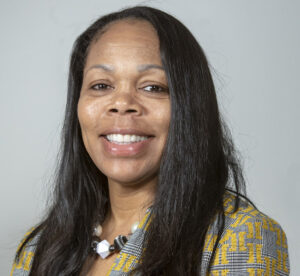
Faculty Fellows
The Fellows are also known as P.A.C.E. (Pedagogical Alliance for Campus Equity) Fellows
The NC State University Campus Community Centers Faculty Fellows program is a dynamic and impactful initiative that exemplifies the university’s strong commitment to fostering an inclusive and diverse campus environment. This esteemed program selects exceptional faculty members who have demonstrated an unwavering dedication to equity, diversity, and social justice within the academic sphere.
At its core, the Faculty Fellows program strongly emphasizes interpersonal engagement. Faculty Fellows actively immerse themselves in the campus community, forging meaningful connections with students, staff, and fellow faculty members. Their approachable and empathetic demeanor creates safe and open spaces where individuals from all walks of life can share their experiences, concerns, and aspirations.
Interpersonal engagement within the program takes shape through a myriad of avenues. Faculty Fellows facilitate enlightening workshops that explore various cultural perspectives, historical contexts, and contemporary issues. They collaborate with student organizations to organize events celebrating cultural heritage and promoting cross-cultural dialogue. These interactions go beyond formal settings, as Faculty Fellows also engage in one-on-one mentoring, offering guidance and support to students navigating the complexities of university life. They actively listen, validate experiences, and amplify marginalized voices, creating an environment where differences are celebrated and understood. This commitment to interpersonal engagement contributes to a richer educational experience, encouraging students to broaden their horizons and develop a deep appreciation for diverse perspectives.
Furthermore, the Faculty Fellows program catalyzes positive change within the larger academic community. The Fellows inspire their colleagues to embrace inclusivity and cultivate meaningful relationships by modeling effective interpersonal engagement. This program’s emphasis on interpersonal engagement transforms the campus community and serves as a guiding light for advancing diversity and inclusion in higher education as a whole.
We strive to be a resource for faculty and students who want to expand their understanding of what it means to build a more just and inclusive campus community. Our aim is to create opportunities for connection, collaboration, dialogue and action that will result in a more equitable culture on campus. We seek to put theory into practice by collaborating with campus stakeholders to empower students and faculty alike in the work of promoting culturally inclusive pedagogies and practices at North Carolina State University.
- For more information, contact Melvin “Jai” Jackson, Ph.D., assistant vice provost for faculty engagement.
2023-2024 Fellow - Lisa Bass
Dr. Lisa Bass, the esteemed NC State Campus Community Centers Faculty Fellow, has made significant strides in transforming the university’s cultural landscape. Through her visionary leadership, she has redefined the role of educators, engaging students in innovative ways and fostering a sense of belonging within the community. Dr. Bass has tirelessly worked to empower marginalized communities, advocating for equity and ethics in education reform. Her profound dedication to the ethics of caring is evident in her interactions with students and the community, creating an atmosphere of trust and support.
university’s cultural landscape. Through her visionary leadership, she has redefined the role of educators, engaging students in innovative ways and fostering a sense of belonging within the community. Dr. Bass has tirelessly worked to empower marginalized communities, advocating for equity and ethics in education reform. Her profound dedication to the ethics of caring is evident in her interactions with students and the community, creating an atmosphere of trust and support.
One of Dr. Bass’s most remarkable achievements lies in her engagement with the African American Cultural Center. Under her act of collaboration, this center has become even more of a hub of empowerment and learning, providing a safe space for students to explore their identities, culture, and history. Through mentorship and unwavering support, she has nurtured the growth of countless students, enabling them to thrive academically and personally. Dr. Bass’s impact extends beyond the confines of the university, bridging gaps between cultures and fostering understanding through her international engagements. Her travels to various countries, including Mexico, Ghana, South Africa, Hong Kong, and Brazil, have enriched her perspective and allowed her to bring global insights to the local community. Dr. Lisa Bass’s leadership exemplifies the transformative power of education, leaving an indelible mark on the lives she touches and the community she serves.
Previous Cohorts
The NC State University Campus Community Centers Faculty Fellows program is a beacon of interpersonal engagement, promoting a culture of understanding, respect, and unity. Through their genuine connections and empathetic interactions, Faculty Fellows play an integral role in nurturing an inclusive campus environment that prepares students to thrive in an interconnected global society. Here are some of our previous Faculty Fellows:
In its inaugural year, the program welcomes three faculty members who represent the First-Year Writing Program and the College of Humanities and Social Sciences.
- Sarah Ruiz (she/her), lecturer, Department of English, NC State University
- Shana Scudder (she/her), lecturer, Department of English, NC State University
- Laura Waldrep (she/her), lecturer, Department of English, NC State University
Throughout the summer break, the 2021-22 fellows worked to establish their cohort’s mission and to provide a title to their partnership initiative. As the academic year began, they set ambitious goals to work with campus partners to provide professional development, faculty coaching and student engagement focused on increasing cultural competency in the classroom.
The work of the African American Cultural Center (AACC) is in part to cultivate a space for critical examination and exploration of African American diasporic cultures. The African American Cultural Center Faculty Fellowship Program (FFP) was established to support scholarly projects by NC State faculty that share this work.
FFP was a semester-long fellowship that provided each fellow with research support and collaborative workspace. Fellows were expected to give one public talk about their research and attend other research talks in the faculty fellowship series.
Dr. Gloria Anderson, Assistant Professor, School of Social Work
 “Let’s Talk About ACP: An African-American Spiritual and Ethical Approach to Healthcare Decision-making and Advance Care Planning Program.”
“Let’s Talk About ACP: An African-American Spiritual and Ethical Approach to Healthcare Decision-making and Advance Care Planning Program.”
Dr. Gloria Anderson comes to NC State after teaching at The University of North Carolina at Pembroke for the past three years. Her expertise is in human development, grief and loss, healthcare equity and cultural diversity. She has published and presented locally, regionally and nationally on these topics.
Acknowledging the racial disparities in healthcare decision-making pertaining to advance care planning, Dr. Gloria T. Anderson introduced the Let’s Talk about ACP program. Her critical analysis of the program allows us to gain a deeper insight into how the healthcare systems equip African-American pastors and faith leaders to educate and empower their congregants in healthcare decision-making related end of life care options. Hoping to serve as a test workshop, The Let’s Talk About the ACP program addresses this critical health equity issue within a sample population in an African-American church.
Dr. Jason Coupet – Associate Professor, School of Public and International Affairs
 “Communicating and Learning from HBCU Successes with Benchmarking Science.”
“Communicating and Learning from HBCU Successes with Benchmarking Science.”
Jason Coupet Presentation (via PDF)
Q&A with Jason
Dr. Jason Coupet is an Associate Professor of Public Administration at NC State. Jason’s Ph.D. is in Strategic Management from the University of Illinois at Chicago, and his BA in Economics from the University of Michigan. His research interests include strategic management, Data Envelopment Analysis, performance measurement, organizational economics, research methods, and the political economy of organizations.
Jason Coupet’s research titled, Communicating and Learning from HBCU Successes with Benchmarking Science, engages with HBCUs to dispute the idea that Historical Black Colleges and Universities are homogenous; on the contrary, it’s the differences among Historical Black Colleges and Universities that serve as a source of strength and influence for institutional success.
Francine Ott, Artistic Director of the Panoramic Dance Project & Dance Lecturer
 “Fragile”
“Fragile”
Q & A with Francine
Francine Elizabeth Ott, a native of New Orleans, is the newly appointed NC State Dance Program Dance Lecturer who serves as the artistic director of the Panoramic Dance Project. Francine received her B.F.A in Dance from the University of Louisiana at Lafayette and studied at many dance intensives, including the American Dance Festival and Jacob’s Pillow, where she received scholarships. She has worked, studied and danced with Camille A. Brown and Dancers, Ronald K. Brown/Evidence, A Dance Company, Brian Green, and Tony Kundu among others.
Ott’s film “Fragile”, focuses on women of color and how trauma has affected their bodies, voices, relationships, emotions, artistry and more. This artistic experience is a seed to be planted in the soil of one’s healing journey. The work would amplify growth through a soundtrack of healing through the voices of students, as well as music.
Dr. Terrance Ruth – Lecturer, School of Social Work
 “Impact of Virtual Communities and Culture on the Perception of Race: Western Contextual Examination of the Evolution of Racial Prejudice.”
“Impact of Virtual Communities and Culture on the Perception of Race: Western Contextual Examination of the Evolution of Racial Prejudice.”
Dr. Terrance Ruth is an Education Consultant and former Administrator for Wake County Public School. Dr. Ruth is the former AMIKids Infinity Wake Principal. Also, Terrance held a Research Assistant position at the Friday Institute for Educational Innovation at North Carolina University. Terrance earned his Ph.D. from the University of Central Florida in the College of Public Affairs. Terrance’s research interest includes the theoretical areas of Globallity and Structuration with a focus on future projections in cultural perceptions.
In his talk, Dr. Ruth explores the paradigm shift that can occur when virtual communities intersect with race and introduces the embedded theoretical underpinning of racial and placed-based prejudice.